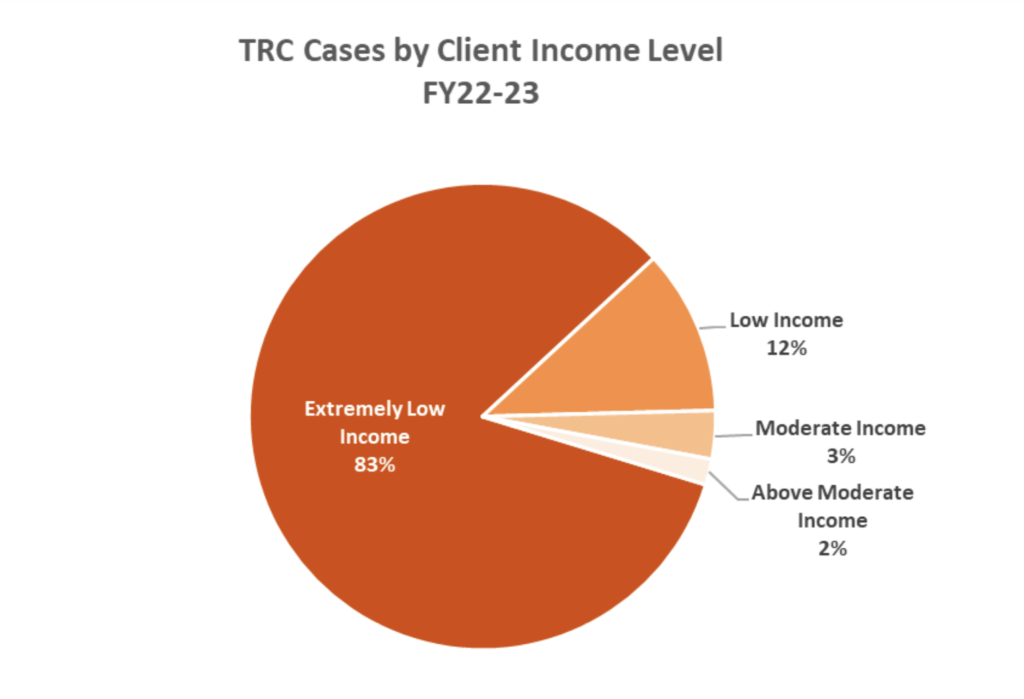One of the most effective way San Francisco has prevented homelessness in the past five years is a law that gives tenants facing evictions the right to a lawyer—and funding for that program could be an issue in the mayor’s upcoming budget.
Of the 1,800 people who were served by the city’s “Right to Counsel” law that provides lawyers for anyone facing an eviction, 92 percent avoided becoming homeless, a new city report shows. Since 83 percent of those cases involved extremely low income people, Right to Counsel is a remarkable success story; one of the leading causes of homelessness in San Francisco is eviction.

It’s also far less expensive to prevent evictions than to address homelessness. The entire cost of the program is $17.7 million; the city spends more than $600 million a year helping people who have become homeless find housing and services.
But the city is facing a huge budget deficit, and supporters of the program are worried it might not survive intact. Sup. Dean Preston has asked for a hearing at the Land Use and Transportation Committee Monday/29. That meeting starts at 1:30.
Preston is also going to ask Mayor London Breed about the program and its future during Question Time Tuesday/30. That starts at 2pm.
The Police Commission will hear a report Wednesday/1 from the Management Control Division and the Department of Police Accountability around misconduct and policy failures in the 2023.
These are always interesting, because under state law, the cops can’t reveal who was involved or what actually happened; they can only offer a summary that names no names.
For example:
DPA had one policy failure case in the third quarter.
The case was regarding an officer-involved shooting that occurred during a standoff between multiple officers and a suspect barricaded in the trunk of a vheicle. The suspect discharged his firearm, and the officer returned fire, striking the suspect.
DPA found that the scene lacked a command structure in the leadup to this OIS. Several officers arrived on scene and surrounded the barricaded suspect. Officers yelled commands at the suspect in both English and Spanish, leading to unnecessary chaos and confusion. Within four minutes of arriving on the scene, one officer grabbed an ERIW (extended range impact weapon) and deployed it on the suspect. Prior to this deployment, there were several sergeants on scene, but none had formulated a plan of given directions to the officer who had the ERIW.
It seems likely that the report is describing this incident, in which cops fired 99 rounds into the trunk of a Honda Civic, killing Jesus Adolfo Delgado-Duarte.
That created significant community outrage:
A visibly upset crowd reacted to the videos, at times shouting “murderers!” in Spanish.
Susana Rojas, a spokeswoman for Delgado-Duarte’s family, said, “We don’t know what happened that night. … But that wasn’t who they knew.”
If this is the same incident—and there have not been a lot of police shootings of a suspect in the trunk of a car, after commands in Spanish and English and a beanbag round—then it took five years to complete the DPA investigation.
It concluded with a “policy failure” decision, which does not involve any disciplinary action.
That meeting begins at 5:30.




